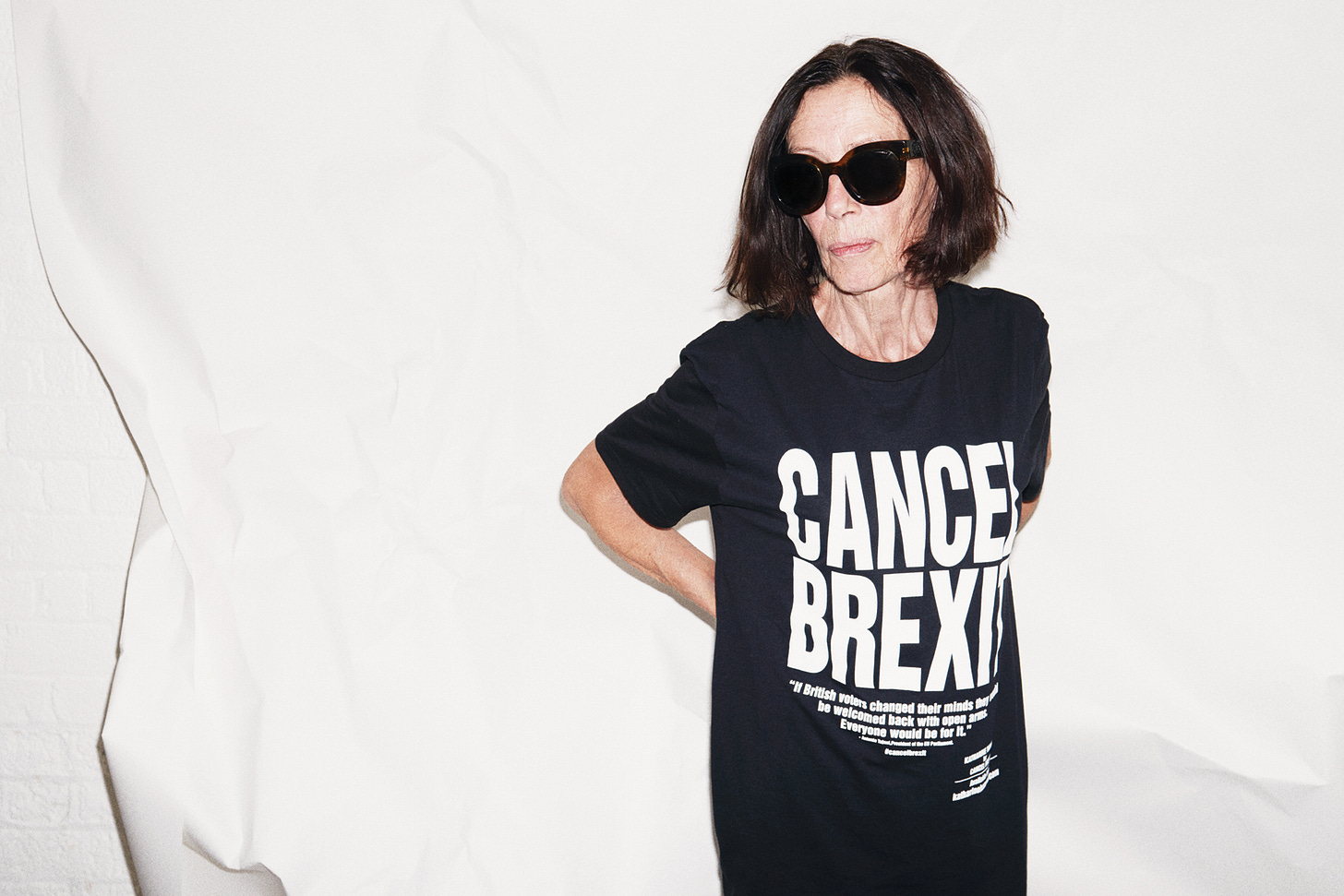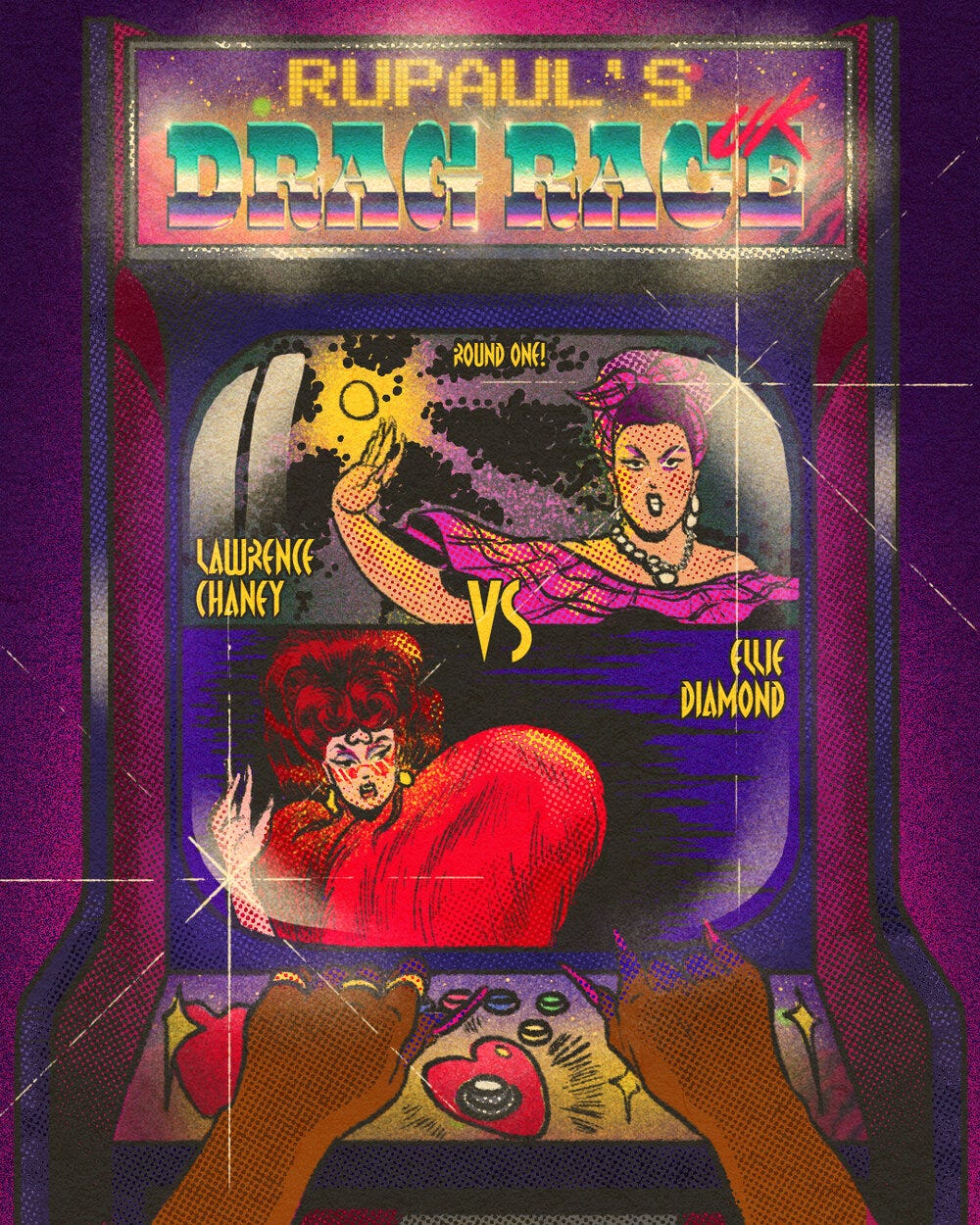Fashion is political
If you enjoy my free content, you can donate the cost of a virtual coffee ☕
“I would like to see the fashion and footwear industry treated in the same way as the tobacco industry… I want to see astronomical fines for corporations that are involved in industrial homicide and environmental degradation, and CEOs put on trial for crimes against humanity.” - Tansy Hoskins
“More often than not, the industry is marking its own homework. To challenge this dynamic and apply the pressure needed for accelerated change, we need policymakers and legislators to support sustainable products, services and business models through investment and incentivisation. We also need the flip side, a punitive framework for those totally unwilling to do the work.” - Samata
“People think it’s just clothes. They don’t see it as a political issue, never mind a humanitarian issue.” - Frances Leach
The fashion industry contributes around 4% of all global greenhouse gas emissions and is the second-highest risk category for modern slavery. What’s more, the industry employs an estimated 2.4 billion people, and in 2018, was valued at $1.4 trillion. So, as influential policymakers across the world turn their attention to climate change solutions at this year’s COP26, why isn’t fashion - an industry that relies on both agriculture and fossil fuel extraction - on the agenda? My latest article about fashion’s colossal regulation gap tries to find out why.
Despite this gap, fashion is political. It has been throughout history, and currently, we’re living through an intense wave of political events that fashion is intrinsically linked to. Take the military coup in Myanmar that garment workers are leading protests against - in a Zoom call this week, the activists themselves were pleading for international brands to condemn the coup and support their fight for democracy. But despite its creativity, fashion can be frustratingly partisan, particularly when its bottom line is threatened by political instability in sourcing countries. That has also been made clear by the ongoing forced labour crisis in the Uighur region of China. Here, a number of cowardly brands sourcing cotton from linked to the genocide have been bowing to pressure from the Chinese government and state media to continue business-as-usual in order to avoid market restrictions, as seen with the likes of Burberry and H&M.
Recently, we’ve also seen the largest protest in history across India, where millions of farmers took to the streets to oppose new government regulation on agriculture. The fashion industry kept quiet, despite the funds it pours into unjust farming systems that prioritise corporate power and threaten worker livelihoods. But for fashion, the protests are an invitation to take accountability, rather than take sides. We’ve seen demands for binding agreements on gender-based violence after H&M has come under fire for a horrific incident in one of its garment factories (#JusticeforJesayre). We’ve even seen legislation hoping to transform the supply chain, like the EU’s new mandatory human rights and environmental due diligence law.
Each of these situations is unique and complex. The more I learn, the less I know. Sweeping statements about solutions from Western influencers and activists - myself included - often fail to fully consider the demands of the workers (which are rarely unanimous), the inner workings of the industry and the intricacies of economic structures. Oversimplified and reactive floods social media every day, and it is becoming more and more difficult to navigate. When we call for systemic change, what exactly do we mean? All this is to say, fashion is so much more than just production and consumption. Fashion is political.
If you’d like to find out more about the role of regulation in fashion, I’d highly recommend subscribing to the new newsletter from New Standard Institute, Rewoven.
Reading list
Catch up on the top headlines
Fashion factory disasters are still happening regularly - here is why
Solving fashion’s biggest issues: Overproduction and overconsumption (paywall)
The sad reality of sustainable fashion: ‘Exaggerated, false, or deceptive’
A conversation with Giorgos Kallis about degrowth and fashion (all of the past issues of Denier are also on my reading list)
Luxury fashion is returning to its long history of repair and refurbishment (paywall)
Garment workers win historic victory to transform the fashion industry
Boohoo severs ties with hundreds of UK manufacturers after critical review
Workers accuse ‘ethical’ British brand of ‘extremely unsafe’ conditions
Tracing a garment: industry looks to shine a light on its blind spots (paywall)
The business model that could save fashion—and why it isn’t everywhere
Will you wear it 30 times?: The experts’ guide to online shopping
Meet Aditi Mayer, the sustainability activist decolonising fashion on Instagram
Brands are adopting regenerative agriculture. Is that a good thing? (paywall)
Brands say they want to keep workers safe, but they’re not willing to pay for it (paywall)
Podcast lineup
Bit quiet here as I have basically only been listening to ehfm
Common Threads is still on a Spring break, but catch up on our latest episodes with Orsola de Castro on her radical wardrobe manifesto and Lora Gene on the contentious role of brands in transforming the fashion system.
The Yikes Podcast has some great new episodes with conversations about abolishing the monarchy, greentrolling and white supremacy.
Naomi Klein on the Owen Jones podcast was excellent.
God save the queens
This work can be pretty serious, so when the wonderful Gina Tonic asked me to interview the two Scottish queens of the Drag Race UK final, I went for it. Queue a Zoom call in which I’ve never felt so underdressed in my life to meet Ellie and Lawrence for a quickfire interview for Polyester, accompanied by the coolest illustrations by Vernon Luna.
In other extra-curricular activities, I joined Lekker for a fun Q&A about my favourite words, shared a wardrobe love letter with Francine Heath, and chatted with Bianca Foley about greenwashing and ethical fashion. I’ll also be joining Emily Stochl for an Instagram Live on Tuesday 20th April at 6pm to talk all things Fashion Revolution.
Take action: #PayYourWorkers
10% of the apparel workforce may have already been laid off since the start of the pandemic. Millions more are at risk of being fired and have not received their full wages for months. The vast majority of these workers are women, in jobs with no respect for their labour rights, leading to a massive imbalance of power in the industry. Many report skipping meals, borrowing money to buy food, and struggling to afford vegetables or meat for their families as the pandemic’s economic crisis rages on. Sign the #PayYourWorkers petition from Clean Clothes Campaign to demand that brands like Nike and Next…
Pay the workers who make their clothes their full wages for the duration of the pandemic.
Make sure workers are never again left penniless if their factory goes bankrupt, by signing onto a negotiated severance guarantee fund.
Protect workers’ right to organise and bargain collectively.
Thanks for reading! You can catch up on past issues of The Ethical Fashion Roundup here, and buy me a virtual coffee to support my work.
You can also sign up for the Fashion Revolution newsletter which I curate each week for more content in your inbox.
Ruth x






